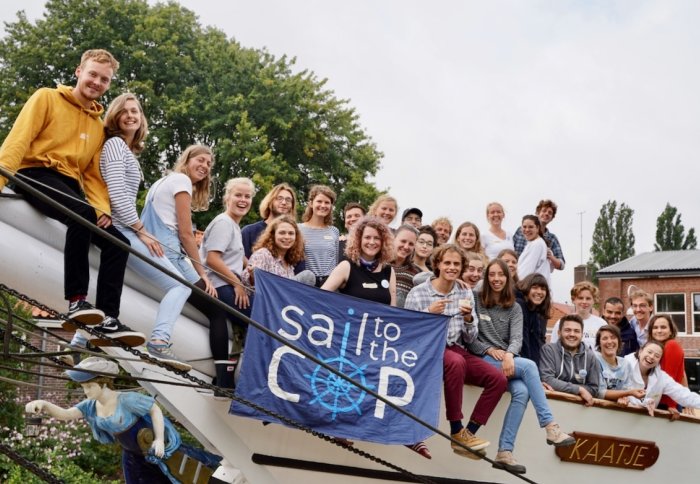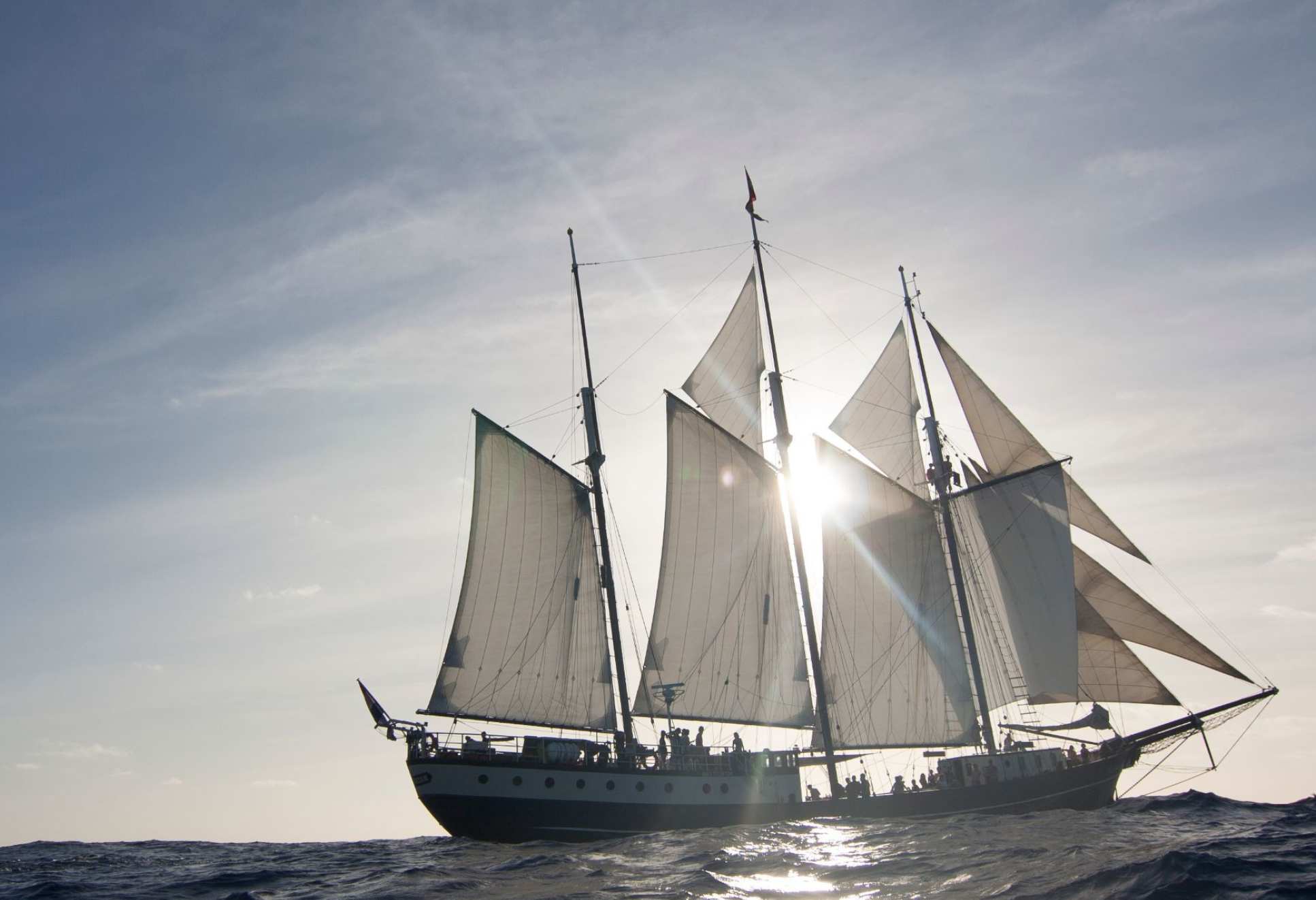Imperial graduate to sail to COP25 to highlight the climate impact of air travel

The team of young activists sailing to COP 25
A recent Business School graduate is joining 35 climate activists from across Europe to sail to the UN Climate conference (COP25) in Chile.
Ines Bakhtaoui graduated from the Business School’s MSc Climate Change, Management and Finance programme this year. She will join a seven week voyage to Chile organised by Sail to the COP, an initiative founded by four Dutch climate activists who want to promote more sustainable travel.
Before she sets sail from Amsterdam this week, Ines spoke to Laura Singleton about her reasons for taking part in this challenge.
How did you get involved with Sail to the COP?
I was looking for a way to travel to COP25 because I’m involved in negotiation tracking for an NGO. However, it felt wrong to fly to a climate change conference, given the impact on the environment. I was looking for alternatives and came across Sail to the COP and applied to take part in their voyage.
What are you looking to achieve from this trip?
I’d like to use this trip to educate people about the impact of air travel as it’s such a big concern for many people. I’ll also get to learn more about sustainable travel and work with a group of people on innovative projects on board the boat, which will help enhance team-work and leadership skills.
I also really want to learn how to sail and have a voice at COP25 – to reach decision-makers and advocate for a way forward on this important issue.
Can you tell me more about the work you’ll be doing on the boat?
We’ll be looking into what the key barriers are that prevent people who can afford air travel from travelling more sustainably. For instance, are there new business models that could be developed or other innovation ideas?
We have a number of sponsors who will make requests for the type of areas they want us to explore during the voyage. For example, one of our sponsors is the Ministry of Transport and Water Management for the Netherlands and they are interested in sustainable travel solutions that involve rail travel.
We’ll also be doing a ‘climathon’ – a hackathon dedicated to climate change, organized by Climate Kic, who will also be on board with us.
When we arrive at the conference in Chile we will present our ideas, based on the outcomes of the activities we did during the voyage. We’ll be looking to create partnerships with people who can help us take these ideas forward.
How do you feel about being away for seven weeks at sea?
Having grown up in a city, surrounded by noise all the time, I’ve never really experienced total silence. It’s an ideal opportunity to disconnect and reflect on the important issues and the reasons why we’re doing this trip, as well as enjoying nature. There’s a chance we’ll see whales and dolphins if we’re lucky, but also plastic floating in the sea. I’m looking forward to seeing all of this, even if some of the sights are difficult to take in.

I understand you’re making a documentary of the trip?
We have some filmmakers onboard and we’ll be making a film about your voyage to help us continue raising awareness of our campaign after the trip has ended. We also have a lot of artists on board who’ll be creating material as part of the campaign.
What should countries be doing to reduce pollution caused by aviation?
People will travel more sustainably if there are the right infrastructures in place to help them do so. For example, in the Netherlands people started cycling because the government invested in the right infrastructure to encourage people to use this mode of transport. If we want rail travel to become something more mainstream, infrastructures will need to be renewed and expanded and train travel will need to be more affordable.
What’s your advice to people who need to travel but don’t have time to use other modes of transport?
It’s very easy to say that people should stop flying or just travel close to where they live, but behavior change is very complex and there are many sides to this issue. There’s the issue of social justice – allowing everyone, no matter what their income or social position, to fly. Travelling also has an environmental impact, mostly on the poor who are the first to suffer from the effects of climate change.
What was the most useful thing you learned on your Master’s at the Business School?
Coming from an engineering background, I understood about the technical aspects of climate change, but nothing about the finance world.
Before I started my Master’s, I thought that finance was about the ‘bad guys’ who had no interest in sustainability, but during my degree I found out this wasn’t true. The most valuable thing I learned was about how the business and finance can world work together to create solutions to the climate change crisis.
Article text (excluding photos or graphics) © Imperial College London.
Photos and graphics subject to third party copyright used with permission or © Imperial College London.
Reporter
Laura Singleton
Communications Division